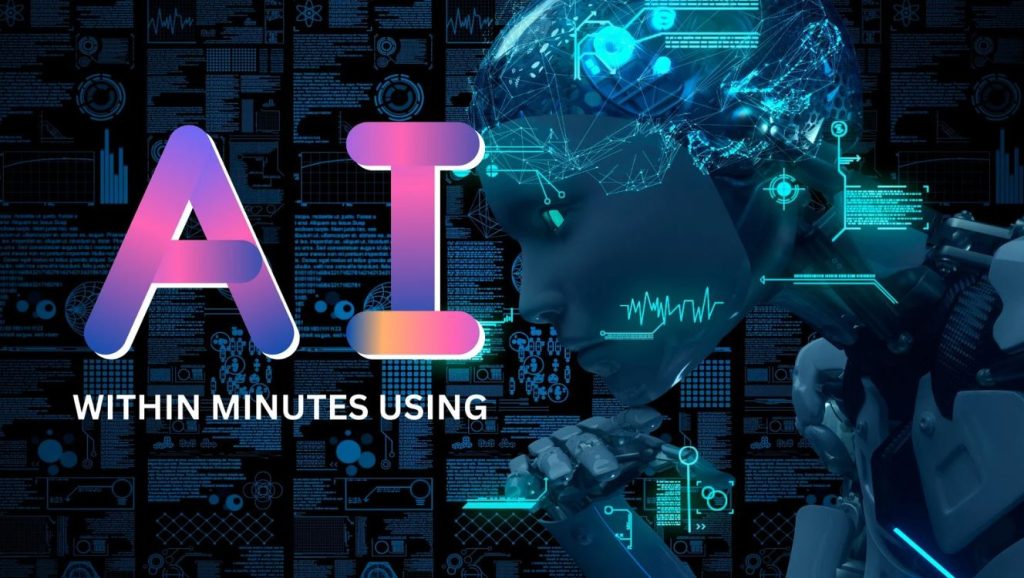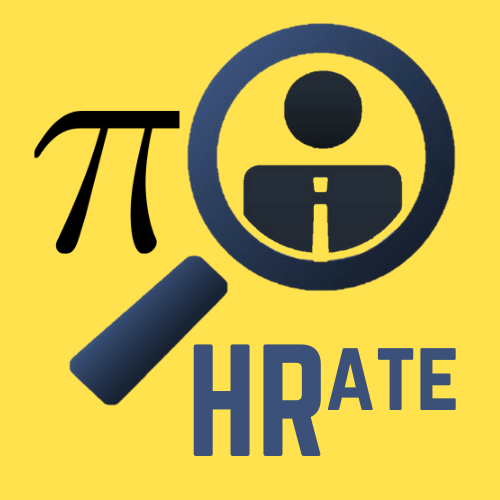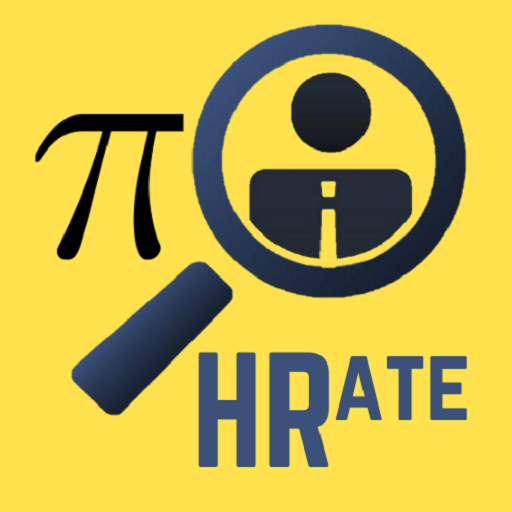Innovative AI Recruiting Solutions for Today’s Competitive Job Market

In the fast-paced and ever-evolving landscape of talent acquisition, Artificial Intelligence (AI) has emerged as a game-changer, reshaping the way organizations identify, engage, and hire top talent. AI recruiting tools have proven to be invaluable assets, leveraging advanced algorithms, machine learning, and automation to streamline processes and enhance decision-making. This article explores the transformative impact of AI in the realm of recruitment, highlighting key tools that have gained prominence in this space.
The Rise of AI in Recruitment
Traditional recruitment methods often involve time-consuming tasks such as resume screening, candidate sourcing, and interview scheduling. AI recruiting tools have stepped in to alleviate these challenges, offering innovative solutions that expedite the hiring process and improve the overall quality of hires.
The rapid evolution of technology has ushered in a new era in the field of recruitment, marked by the transformative rise of Artificial Intelligence (AI). In recent years, AI has emerged as a powerful force reshaping traditional hiring processes and revolutionizing the way organizations identify and acquire top talent. This paradigm shift is driven by the ability of AI to process vast amounts of data quickly, enabling recruiters to make more informed decisions, enhance efficiency, and ultimately elevate the entire recruitment experience.
One key aspect contributing to the rise of AI in recruitment is its prowess in automating repetitive and time-consuming tasks. From sifting through resumes to screening candidates based on predefined criteria, AI-driven tools streamline these processes, allowing human resources professionals to redirect their focus towards strategic aspects of talent acquisition. This automation not only accelerates the hiring timeline but also reduces the likelihood of biases in decision-making, fostering a more inclusive and diverse recruitment environment.
Moreover, the surge in AI adoption is fueled by the increasing complexity of modern job markets. The demand for specialized skills and the growing volume of available data make it challenging for recruiters to manually assess and match candidates with the right opportunities. AI, with its advanced algorithms and machine learning capabilities, excels in parsing through intricate skill sets, predicting candidate success, and facilitating more precise matches between job openings and potential hires. As organizations strive to gain a competitive edge in attracting top-tier talent, the rise of AI in recruitment becomes a strategic imperative in navigating the complexities of the contemporary workforce landscape.
Why AI Recruiting Matters in 2024
Enhanced Efficiency and Time Savings
The advent of AI in recruitment has introduced a paradigm shift by introducing a level of automation that was previously unattainable. With AI recruiting tools taking the reins of repetitive tasks, HR professionals can now redirect their focus toward more strategic aspects of the recruitment process. This newfound efficiency doesn’t just translate to time savings; it allows human resources teams to delve deeper into talent strategy, fostering a more proactive approach to identifying, engaging, and securing top-tier candidates. By harnessing the power of AI to automate routine tasks, organizations can create a more agile and responsive recruitment process that aligns with the dynamic needs of the modern job market.
The time-efficient talent acquisition facilitated by AI recruiting tools goes beyond merely speeding up the hiring process. It inherently transforms the role of HR professionals, positioning them as strategic partners in organizational growth. With the burden of repetitive tasks lifted, HR teams can engage in more personalized candidate interactions, craft targeted recruitment strategies, and contribute to a more nuanced understanding of the ever-evolving talent landscape. In essence, the enhanced efficiency brought about by AI in recruitment not only optimizes time but also empowers HR professionals to play a more strategic and value-driven role in shaping the workforce of the future.
AI recruiting tools automate repetitive tasks such as resume screening and candidate sourcing, slashing the time traditionally spent on these processes. This newfound efficiency allows HR professionals to focus on strategic aspects of recruitment.
Precision in Candidate Matching
In the contemporary landscape of talent acquisition, the emergence of Artificial Intelligence (AI) has revolutionized the precision and accuracy with which candidates are matched to job opportunities. At the heart of this transformative shift is AI-driven candidate matching, propelled by sophisticated algorithms capable of analyzing vast datasets. These algorithms not only consider explicit skill criteria but also delve into nuanced aspects, ensuring a holistic evaluation that goes beyond the surface of a candidate’s resume. The result is a level of precision in candidate matching that reshapes the hiring process, aligning organizations with candidates who not only possess the requisite skills but also embody a cultural fit.
Precision hiring, facilitated by AI recruiting tools, addresses a longstanding challenge in recruitment – the alignment of candidates with the unique ethos and values of an organization. Beyond technical skills and qualifications, cultural fit has become a cornerstone of successful long-term hires. AI’s ability to dissect complex datasets allows for a granular examination of a candidate’s attributes, personality traits, and work style, enabling recruiters to make decisions that extend beyond the immediate requirements of a role. In doing so, organizations can foster a workplace culture where employees are not just skilled professionals but also individuals who contribute positively to the overall dynamic of the team and company.
The impact of AI-driven precision in candidate matching extends far beyond the initial stages of recruitment. By ensuring that the candidates selected are not only technically proficient but also culturally aligned, organizations can reduce turnover rates and enhance employee engagement. The precision in matching provided by AI contributes to a more cohesive and harmonious work environment, where individuals thrive not only in their roles but also in their interactions with colleagues and the organizational culture at large. In essence, AI-driven candidate matching transforms hiring into a strategic initiative that aligns with organizational goals, values, and long-term success.
With advanced algorithms, AI recruiting tools analyze vast datasets to match candidates with job requirements accurately. This precision ensures that organizations connect with candidates who not only meet the skills criteria but also align with the company culture.
Improved Decision-Making with Data Insights
The integration of Artificial Intelligence (AI) into the recruitment landscape heralds a new era of improved decision-making through data-driven insights. AI tools, armed with advanced analytics capabilities, delve into vast pools of historical data to extract actionable insights for recruiters. By deciphering patterns, trends, and success indicators from past hiring endeavors, these tools empower recruiters to make more informed decisions, marking a departure from intuition-based hiring towards a data-driven paradigm.
The essence of data-driven hiring lies in its ability to transform recruitment into a strategic endeavor. AI analytics enable recruiters to go beyond conventional metrics, providing a comprehensive view of the entire talent acquisition lifecycle. Whether it’s identifying the most effective sourcing channels, optimizing candidate engagement strategies, or predicting the success of hires based on specific criteria, AI-driven data insights contribute to a more strategic recruitment approach. This transformative shift fosters agility, adaptability, and a continual learning mindset within the recruitment process, aligning it with the dynamic needs of the ever-evolving job market.
Strategic recruitment, fueled by data-driven insights, isn’t merely about optimizing individual processes; it’s about elevating the entire recruitment strategy. Recruiters armed with a wealth of historical data are better equipped to anticipate trends, adapt to changing market conditions, and proactively address challenges. This proactive approach, underpinned by AI analytics, positions recruitment as a key driver of organizational success. As organizations navigate a competitive talent landscape, the strategic integration of data-driven insights through AI tools becomes a cornerstone of effective decision-making, ensuring that each hiring choice contributes not only to immediate staffing needs but also to the long-term growth and resilience of the organization.
AI tools provide actionable insights by analyzing historical data, enabling recruiters to make informed decisions. This data-driven approach enhances the overall recruitment strategy, optimizing processes and outcomes.
Cutting-edge AI recruiting technologies in 2024
- Predictive Analytics for Candidate Success:
- Overview: Advanced predictive analytics algorithms analyze historical data to predict a candidate’s likelihood of success in a particular role.
- Benefits: Improved hiring accuracy, reduced turnover rates, and better alignment between candidates and job requirements.
- Automated Skills Assessment and Verification:
- Overview: AI-powered tools that automatically assess and verify candidates’ skills based on their resumes, work samples, or online profiles.
- Benefits: Faster and more accurate skills evaluation, reducing manual efforts in the screening process.
- AI-Powered Interviewing Assistants:
- Overview: Virtual assistants that use natural language processing (NLP) to assist recruiters during interviews, providing real-time insights and suggestions.
- Benefits: Enhanced interviewer experience, improved objectivity, and more data-driven decision-making.
- Behavioral Analysis for Cultural Fit:
- Overview: AI algorithms analyze candidate interactions, including video interviews and written communication, to assess cultural fit within an organization.
- Benefits: Improved team dynamics, better cultural alignment, and reduced risks of cultural mismatches.
- Augmented Reality (AR) in Recruitment Assessments:
- Overview: AR technologies integrated into recruitment assessments to create immersive and interactive experiences for candidates.
- Benefits: Enhanced candidate engagement, more realistic job previews, and a differentiated candidate experience.
- Emotion Recognition in Video Interviews:
- Overview: AI algorithms that analyze candidates’ facial expressions and vocal tones during video interviews to gauge emotional intelligence and communication skills.
- Benefits: Additional insights into candidates’ soft skills, helping assess their emotional intelligence and interpersonal abilities.
- Intelligent Talent Matching Platforms:
- Overview: Platforms that leverage AI to match candidates with suitable job opportunities based on their skills, experience, preferences, and organizational culture.
- Benefits: Faster and more accurate candidate-job matching, reducing time-to-fill and improving overall recruitment efficiency.
- Continuous Learning Algorithms:
- Overview: AI algorithms that continuously learn from hiring outcomes and recruiter feedback to improve their predictive capabilities over time.
- Benefits: Adaptive and evolving recruitment models, leading to increasingly accurate predictions and better decision support.
- Ethical AI in Recruitment:
- Overview: AI technologies designed with a focus on ethical considerations, including fairness, transparency, and the prevention of bias in the recruitment process.
- Benefits: Mitigation of biases, improved diversity and inclusion, and compliance with ethical standards in hiring practices.
- Blockchain for Candidate Verification:
- Overview: Integration of blockchain technology to securely and transparently verify candidates’ credentials, certifications, and work history.
- Benefits: Enhanced data security, reduction of fraudulent claims, and streamlined background verification processes.
These cutting-edge AI recruiting technologies in 2024 showcase the potential advancements in the field, emphasizing the ongoing pursuit of efficiency, fairness, and improved decision-making in the recruitment process. Keep in mind that the actual landscape may involve a combination of these technologies and others not explicitly mentioned.
Key AI Recruiting Tools in Focus
| Tool | URL | Description | Features | Integrations |
|---|---|---|---|---|
| Greenhouse | Greenhouse | Comprehensive ATS with a focus on collaboration and improving the entire hiring process. | ATS, collaborative hiring, analytics | Integrates with various HR and third-party tools |
| Workday Recruiting | Workday Recruiting | Part of the Workday suite, offering a comprehensive suite of HR tools with AI-driven recruitment. | ATS, AI-driven recruitment, HR management | Part of the broader Workday suite |
| HireVue | HireVue | Focuses on video interviews with AI assessment for evaluating candidates’ cues. | Video interviewing, AI assessment | Integrates with various HR and talent management systems |
| Lever | Lever | ATS emphasizing collaboration and user-friendliness throughout the hiring process. | ATS, collaborative hiring, analytics | Integrates with various HR and communication tools |
| SmartRecruiters | SmartRecruiters | ATS with AI-driven features for sourcing, screening, and improving the hiring process. | ATS, AI-driven recruitment, collaborative hiring | Integrates with various HR and third-party tools |
| Entelo | Entelo | Proactive sourcing and diversity hiring platform utilizing AI. | Proactive sourcing, diversity hiring | Integrates with various ATS and HR systems |
| Textio | Textio | AI-driven job listing optimization platform for better engagement. | Job listing optimization | Integrates with ATS, HRIS, and recruitment software |
| Jobvite | Jobvite | Full-suite recruiting platform with AI features for sourcing and screening. | ATS, AI-driven recruitment, onboarding | Integrates with various HR and third-party tools |
| Ideal | Ideal | Recruitment automation platform with AI for resume screening and candidate matching. | Recruitment automation, candidate matching | Integrates with ATS and HRIS systems |
| XOR.ai | XOR.ai | Conversational AI platform for recruiting, facilitating automated candidate communication. | Conversational AI, automated candidate communication | Integrates with ATS and other HR tools |
| RecruitBot | RecruitBot | AI-driven automation for resume screening and candidate engagement. | Resume screening, candidate engagement | Integrates with various ATS and HR systems |
| Fetcher | Fetcher | AI-powered recruiting automation platform for sourcing and engaging with candidates. | Sourcing automation, candidate engagement | Integrates with various ATS and CRM systems |
| SeekOut | SeekOut | AI-driven talent search platform with a focus on diversity sourcing and candidate insights. | Talent search, diversity sourcing | Integrates with various ATS and CRM systems |
| AmazingHiring | AmazingHiring | AI-powered sourcing and candidate engagement platform with a focus on tech talent. | Sourcing automation, candidate engagement | Integrates with various ATS and CRM systems |
Conclusion
AI recruiting tools have become indispensable assets for modern HR professionals and recruiters, offering efficiency, precision, and a competitive edge in talent acquisition. As technology continues to advance, these tools will likely play an increasingly pivotal role in shaping the future of recruitment. Organizations that embrace AI recruiting tools stand to benefit not only from streamlined processes but also from the ability to make more informed and data-driven hiring decisions, ultimately contributing to the success and growth of their teams.
AI recruiting tools are not just a trend but a necessity for organizations striving to excel in talent acquisition. The efficiency gains, precision in candidate matching, and data-driven decision-making they bring to the table make them indispensable for HR professionals navigating the competitive hiring landscape in 2024. As AI continues to evolve, so too will the capabilities of these tools, ensuring that organizations embracing AI recruiting stay at the forefront of innovative and effective talent acquisition strategies. Stay tuned for further advancements in this transformative field.
Frequently Asked Questions (FAQ)
What is AI recruiting?
AI recruiting refers to the use of Artificial Intelligence in various stages of the recruitment process. It includes tools and technologies that automate tasks, enhance decision-making, and streamline talent acquisition.
How does AI streamline hiring processes?
AI streamlines hiring by automating repetitive tasks such as resume screening and candidate sourcing. It also provides data-driven insights, improving the efficiency and accuracy of decision-making in recruitment.
What are the benefits of AI-driven candidate matching?
AI-driven candidate matching ensures precision in aligning candidates with job requirements. It considers both explicit skills criteria and cultural fit, resulting in more accurate matches and successful, long-term hires.
How do AI analytics contribute to data-driven hiring?
AI analytics analyze historical data to provide actionable insights for recruiters. This data-driven approach optimizes recruitment strategy, offering a comprehensive view of the talent acquisition lifecycle and improving overall outcomes.
Can AI tools predict candidate success?
Yes, AI tools leverage historical data and advanced algorithms to predict a candidate’s likelihood of success in a specific role. This helps recruiters make more informed decisions during the hiring process.
What role does AI play in improving decision-making in recruitment?
AI improves decision-making by providing recruiters with data-driven insights. Recruiters can analyze patterns, trends, and success indicators from historical data, enabling them to make more informed and strategic decisions.
Is AI recruiting suitable for all types of organizations?
Yes, AI recruiting can benefit organizations of all sizes and industries. The scalability and adaptability of AI tools make them valuable for streamlining recruitment processes and improving outcomes.
How does AI contribute to strategic recruitment?
AI contributes to strategic recruitment by providing recruiters with insights that go beyond conventional metrics. It helps anticipate trends, adapt to market conditions, and proactively address challenges, fostering a strategic and proactive recruitment approach.
Are there ethical considerations in AI recruiting?
Yes, ethical considerations are important in AI recruiting. Organizations should ensure fairness, transparency, and the prevention of biases in AI algorithms to create an inclusive and unbiased hiring process.
What are some cutting-edge AI recruiting technologies in 2024?
While specific technologies may vary, potential advancements include predictive analytics, automated skills assessment, AI-powered interview assistants, and continuous learning algorithms. It’s advisable to stay updated on the latest developments in the field.




2 Responses
[…] These examples highlight how technology is not just automating tasks but revolutionizing the entire recruitment journey, making it more efficient, data-driven, and candidate-focused. As organizations continue to embrace these innovations, they gain a competitive edge in attracting and securing top talent in the ever-evolving job market. […]
[…] Artificial Intelligence (AI) and automation are revolutionizing HR processes. From recruitment chatbots that screen candidates to AI-driven analytics that predict employee turnover, these technologies are making HR more efficient and effective. Automation of routine tasks allows HR professionals to focus on strategic activities that add value to the organization. However, it also requires HR to develop new skills and adapt to new tools. […]